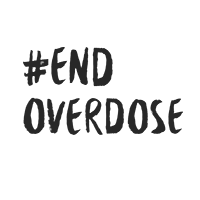
Public Health – Seattle & King County’s Public Health Insider
August 31 is International Overdose Awareness Day. Every year, this serves as a time to remember our fellow community members who have died of or survived an overdose and raise awareness of ways to prevent future overdoses.
This year, King County is working with community partners to expand the use of naloxone (also known as Narcan) – a powerful and very safe tool that can save the life of someone experiencing an opioid overdose – and educate the community about available treatments for opioid use disorder.
Opioid-related overdoses in King County
Opioid-related overdoses and overdose deaths are at record levels in King County and throughout the state of Washington. The rise in the presence of fentanyl, a powerful synthetic opioid 50 to 100 times more powerful than heroin or morphine, is driving this steep increase in overdoses and overdose deaths. Fentanyl pills made to look like prescription opioids are flooding King County. Illicit drug manufacturers are producing more and more counterfeit pills and powders with fentanyl, which translates into a higher risk of overdose and death – even from just one pill.
There are increases in fatal fentanyl overdoses among all racial/ethnic groups in King County. We also continue to see disparities in some racial groups. Despite making up 7% of the King County population, 18% of fatal fentanyl overdoses in 2021 have occurred among Black King County residents.
Public Health – Seattle & King County’s Overdose Prevention and Response Team has been ramping up its overdose response over the last decade based on the recommendations from the King County Heroin and Prescription Opioid Taskforce.
One of the most effective tools for preventing opioid overdose deaths is education on what overdose looks like and making the overdose reversal medication naloxone easily accessible to the public.
“Naloxone is an opioid blocker that can reverse an opioid overdose within minutes, and anyone can administer it,” said Mandy Sladky, an addiction nurse with Public Health. “It’s a very safe medication. It has no effect on someone who has not taken opioids. Anyone can get naloxone, without a prescription, at a pharmacy or many other locations. We want to make sure as many people in the public as possible have naloxone on-hand and know how to use it, so that they can intervene to save a life if they witness someone experiencing a possible overdose.”
Train-the-Trainer program
To increase the distribution of naloxone and decrease overdose deaths in disproportionately impacted communities, Public Health is partnering with community organizations to design overdose prevention training programs, empowering individuals to become local trainers. The goal is to co-develop culturally relevant trainings on the stigma around substance use, available treatments, and overdose prevention centered around best practices in harm reduction.
So far, the co-developed trainings have occurred with many cultural specific providers, including the Somali Health Board, Consejo Counseling, Peer Washington, and Community Passageways, with more trainings planned for late summer and early fall 2022.
Using a “train-the trainer model”, in which Public Health staff and community leaders train community partners to lead the training for others in their community, we can expand and sustain the reach of this life-saving information.
“The Train-the-Trainer model has allowed leaders in the community to confidently deliver trainings to the community at-large on opioid overdose, how to respond, and where to get naloxone,” said Rowaida Mohammed, Program Manager with Somali Health Board.
The training strives to address the overrepresentation of many cultural, racial, and ethnic groups in overdose deaths in King County, while also working to destigmatize addiction and empower community members to act against these trends by understanding how to use naloxone.
Commemorating International Overdose Awareness Day
For International Overdose Awareness Day this year we will be partnering with Seattle Musicians Access to Sustainable Healthcare (SMASH) to host an overdose prevention training for staff at local music venues. SMASH’s “Anti-27” campaignraises awareness of overdose prevention in the world of music, a community that has been ravaged by overdose throughout the years. The campaign is based on musicians who have all died at the age of 27, including Kurt Cobain, Amy Winehouse, Jimi Hendrix, and Janis Joplin, among others.
On this International Overdose Awareness Day, our hearts go out to all those who have lost their lives to overdose. But this does not just have to be a day of remembrance; it can be a day of action, as well. Treatment is readily available by contacting the Washington Recovery Helpline. Additionally, naloxone is a powerful and very safe life-saving tool. Naloxone is available to anyone, without a prescription – visit StopOverdose.org to find a site near you that provides naloxone and learn more about how to use it. Carrying naloxone with you means you can save a life if you encounter someone experiencing a potential opioid overdose.
More information
For more information on preventing an overdose, please visit www.kingcounty.gov/overdose.
For more information on International Overdose Awareness Day, visit www.overdoseday.com
Originally published August 30, 2022.

